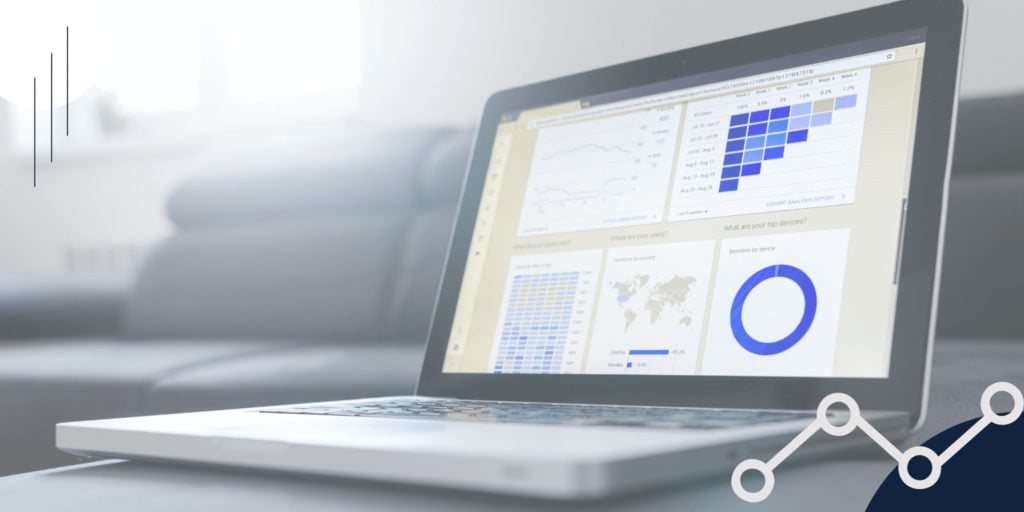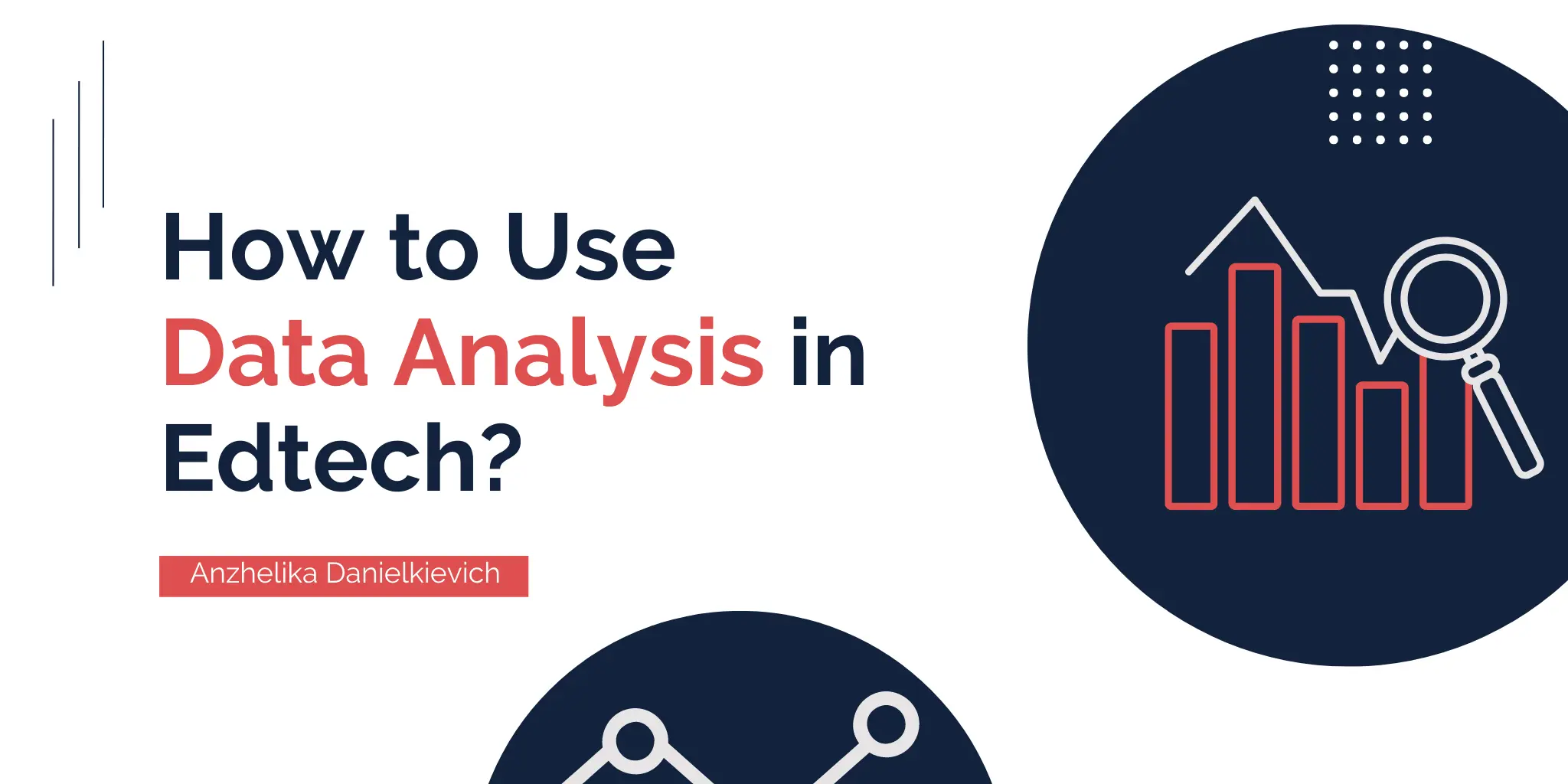How to deliver quality education services and make beneficial data-driven decisions
The culture of big data is already a part of our life. Every minute our smartphones, computers, tablets process a vast amount of information. We use the software while working, studying, doing sports, and even when managing our leisure time. But do you frequently think about the volume of data processed by machines? I do not. And this is where the value of big data is seen. Big data makes people forget about boring information processing. Technology does everything for us. It allows people to devote their time to more pleasant and goal-oriented activities.
Yet, data management becomes a doubly challenging task when it comes to institutions. Educational organizations and institutions have big databases. They use them daily to administer educational processes. Combined with data analysis, big data can really transform an institution. It allows educators to teach students not for the sake of teaching but for the sake of empowering growth. Integrating data analysis allows their education software solutions to work at full capacity. As you might guess, today’s article will tell you more about data analysis and its use in education.
Big Data and Analysis
There is no unified definition of big data. People usually know what big data means but cannot describe it in plain words. In 2013. Ward & Barker decided to solve this dilemma and conducted a study. In their study, the researchers investigated big data definitions. As they noted, big data generally denotes big volumes of various types of information collected with high velocity. So, big data is characterized by velocity, variety, and significance. You may ask, why did big data get its own definition at all? Humanity always collected a big amount of information in libraries, state archives. What is different with big data?
The difference lies in the fact that big data presupposes effective, effortless, and quick processing. Before the digital era came into our life, processing info took a lot of time and effort. Now, with the help of automated digital tools, we can do it effortlessly. The National Academy of Education in their report states:
In the educational context, big data typically take the form of administrative data and learning process data, with each offering their own promise for educational research as well as raising their own privacy concerns.
Why Big Data
Under the digitalization trend, the use of big data has brought vast changes to the education sector. It simplifies working in educational contexts. We all witness how the traditional methods of gathering info are gradually moving to the background. Organizations are now digitizing their institutional information. In education, for example, people use big data for the systematization of student records. It results in the adoption of the so-called Student Information Systems, or SIS, used to manage student data. This data comprises info about demographics, performance, academic records. The use of big data in SIS helps teachers systematize decade-long records of students’ activity at an institution.
Another aspect of edtech where big data comes into play is LMS, or learning management system. Before the invention of LMS, educators found it difficult to keep track of student activities in a classroom. Today, this is possible with powerful learning management solutions. Teachers share instructions, manage tasks and interactions, communicate with students and colleagues using LMS. For an educator, the task is to make a few clicks. Meantime, for a system, the task is to process the tones of data. If you are interested in this topic, check out our blog. You will learn more about the types of LMS and get answers to the most common questions. How to encourage students and teachers to use LMS, prevent wasting money, make sure that your information is protected, and much more in “LMS for Schools: Take School Management to a New Level.”
The Benefits of Data Analysis
Now you know that managing big volumes of data is a beneficial yet challenging task. The more information about student performance teachers get, the more effective action plan they can develop. Such a plan can have many goals. It can improve student performance, increase their concentration, or give them practical knowledge. But the more data educators have, the harder it is for them to analyze and interpret it. This is where they apply data analysis. Data analysis allows educators to collect information effortlessly. Their only task is to turn outcomes into beneficial measures, while technology takes care of the rest.
Data analysis is the process of collecting, managing, analyzing, and interpreting information. In edtech, data analysis is applied in student, instructor, course, and facility data management. With technology-based data analysis, educators forget about manual information processing. They forget about rushing from one shelf with folders to another. With data analysis in edtech, you can:
- Deliver quickly
You don’t have to spend hours searching for the needed folder with the record of a particular student. Your organization’s data is stored in one place. You can access it with just a few clicks. As compared to physical data management, edtech data analysis saves you time and space.

- Prevent errors
Data analysis prevents errors that could be made during the interpretation stage. Calculating values or manually creating graphs or tables increases the chances of mistakes. This is because of the human factor present in the manual data processing. With data analysis, you prevent errors and get precise results.

- See the whole picture
In your daily work, you usually focus on particular tasks and duties. You might not have time for analyzing a general picture. Data analysis will do it for you. While you do your work, data analysis adds the daily results to the general database and forms conclusions. Your only task is to check the updates and take necessary actions.

- Be proactive
Data analysis helps you bring important changes to your organization. It allows you to focus not only on the processes but also on the impacts. Hence, using the results of data analysis, you take a more proactive approach. It allows you to look for ways to improve the organization’s functioning.

We will gladly assist you with choosing the best option for your case. Would you like us to help you with this responsible task?
- Minimize risks
Data analysis minimizes the risks of data loss or damage. By choosing a reliable edtech development team, you will be ensured high-level data protection. The team will instruct you on quick recovery methods. You will forget about the situations when your employees lose important documents.

- Provide personalized education
Being proactive means driving growth in your institution. With data analysis, you can personalize student learning. Data analysis allows for the interpretation of student performance. You can use it for the personalization of education.

Data Analysis in Education
We may distinguish three different ways of how data analysis transforms education. Let’s review them in more detail. Such a discussion may help you understand whether your organization needs data analysis.
Improving Student Outcomes
You can improve learners’ outcomes with data analysis. Schools store information about their students in databases. This information includes student demographic details, academic records, student personality portraits. Teachers can use this information to make predictive decisions. For example, based on the analysis of students’ usual performance, an educator can make predictions about their results in the future. If they see that some student’s academic performance drooped rapidly as compared with his or her usual results, it’s high time to take measures. Educators also use data analysis to enhance student cooperation during classes. Based on the data analysis, teachers can correctly subdivide students into groups. They get in-hand information about student profiles and can mix students with different skills in one group.
Upgrading Software
A lot of people are moving online, which means that they pay more attention to the software they use. Students and teachers using software in education are now more aware of the quality of online tools. This is why upgrading software is a number-one rule for effective online cooperation and learning. Data analysis provides educators with statistics and figures. You can adjust the functionality of data analysis tools to your organization’s needs and goals. When you upgrade your software, data analysis will show you the changes in metrics and outline tendencies for you. In this way, you will be able to invest in the right upgrades and track the improvements.

Increasing Learners Engagement
Data analysis gives educators the opportunity to track student behavior while using the software. Suppose that a teacher introduces some changes to the curriculum. The teacher’s aim is to check how students respond to these changes. One of the ways to do this is to ask students directly. However, the chances are that they will give fakes answers. Students will be afraid that their responses will affect the teacher’s attitude. Another way is to use data analysis. Data analysis will show whether the changes have any effect on student performance and interaction with each other. Using such methods, teachers can empirically find ways to increase student engagement.
In Conclusion
With data analysis in education, the human role in data management becomes more goal-oriented. Teachers and educators can achieve their goals quickly. Depending on your organization’s aims, data analysis can be adjusted in a way it will give you the right information. You do not need to review info manually. Your task is to use the obtained results for introducing positive changes. Just choose metrics to focus on, and data analysis will do everything for you.
Ask an education software development company to help you answer this question. Our company specializes in edtech software development. Together, we can review your strategy, goals, and needs and decide whether data analysis may help.

























